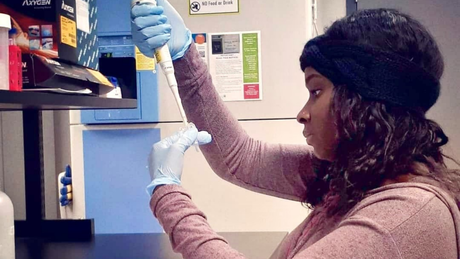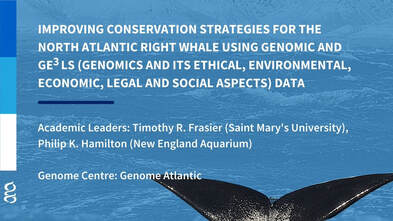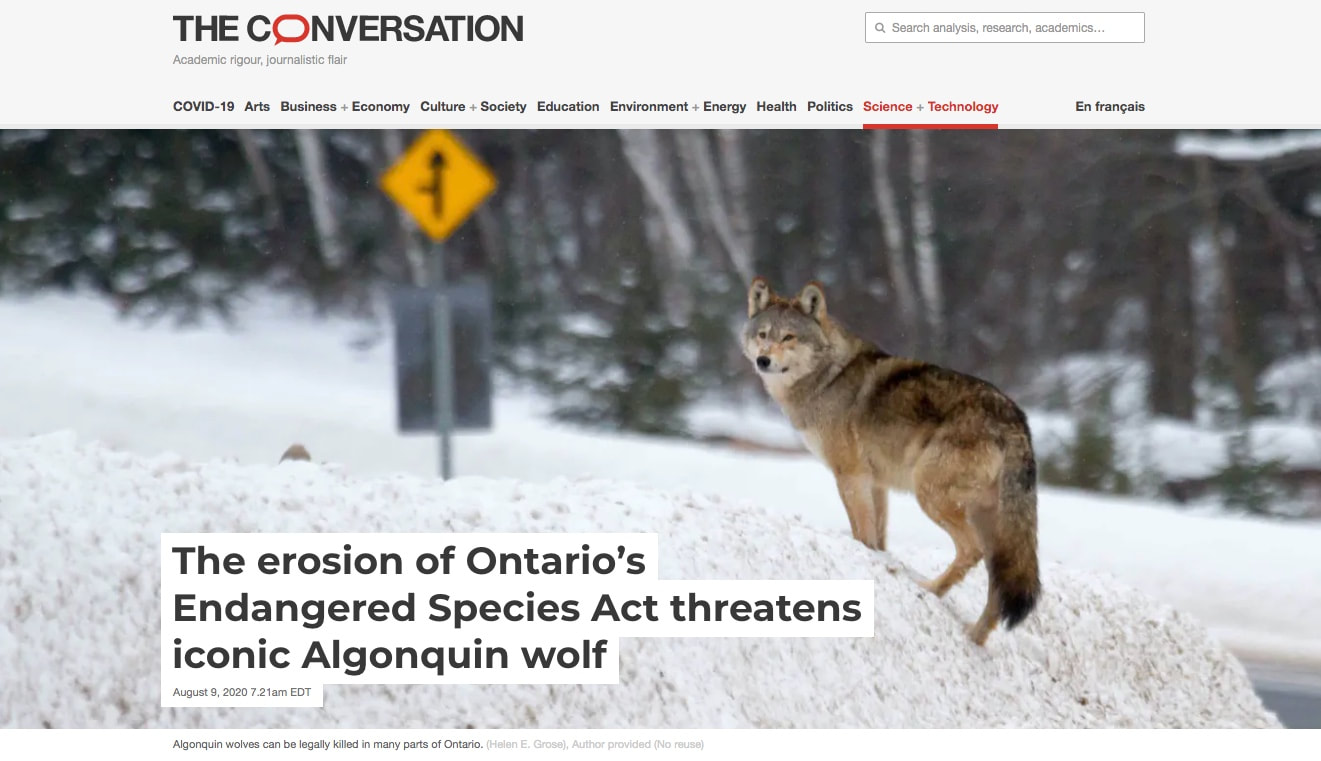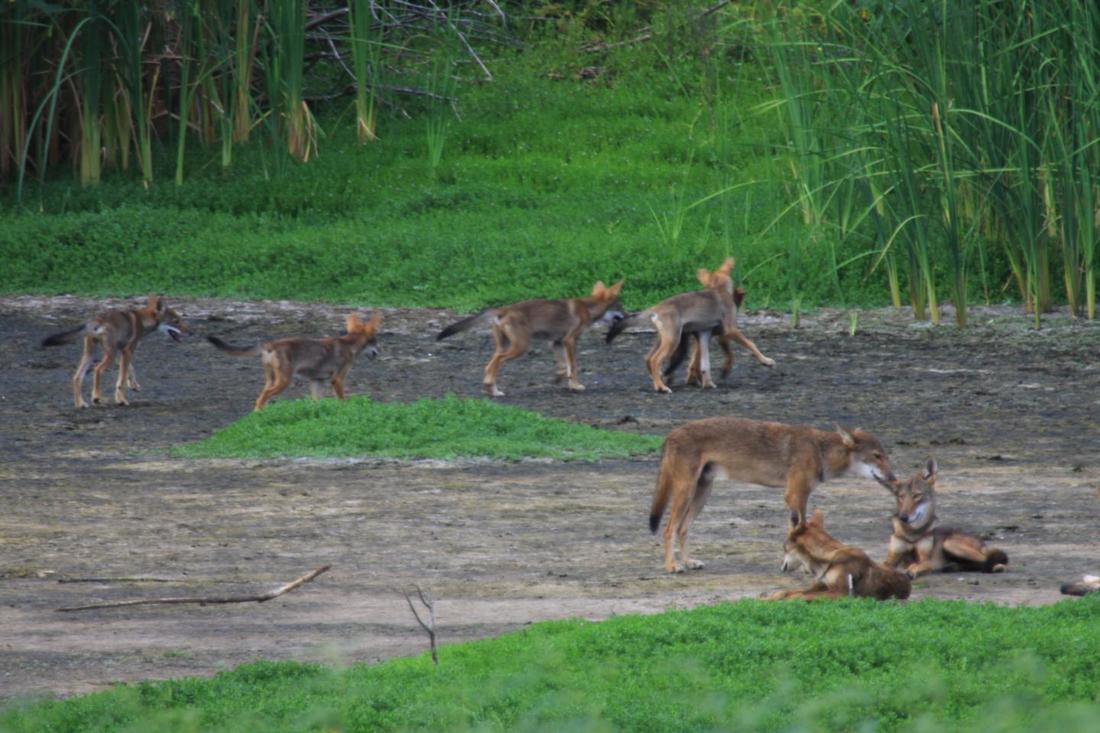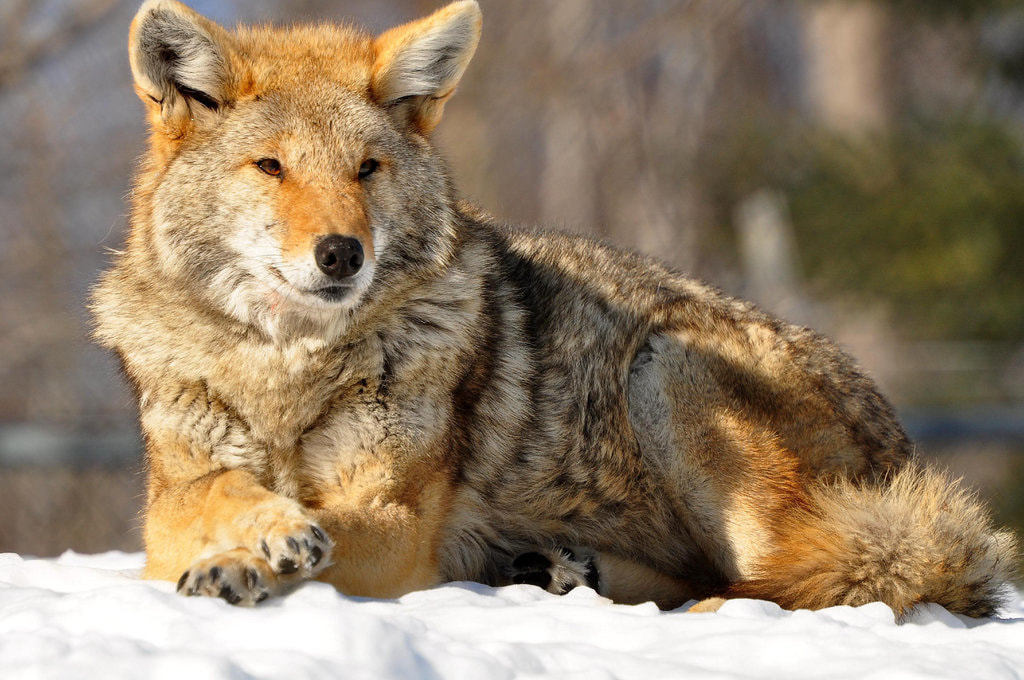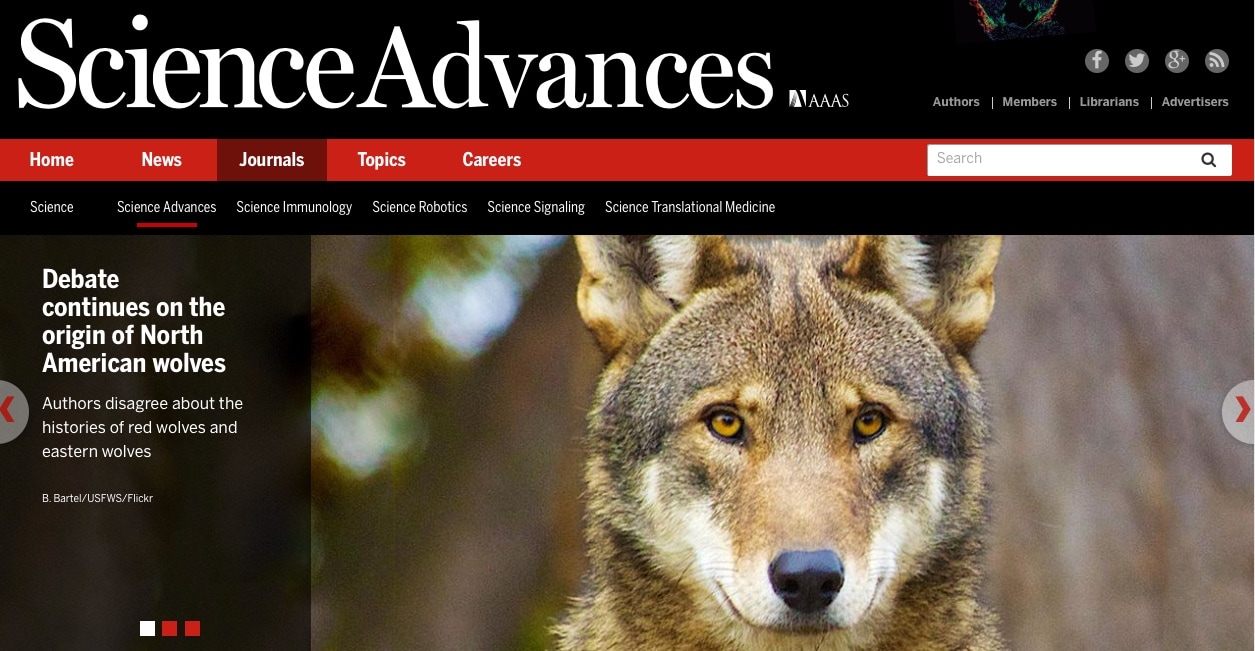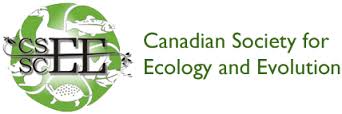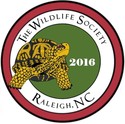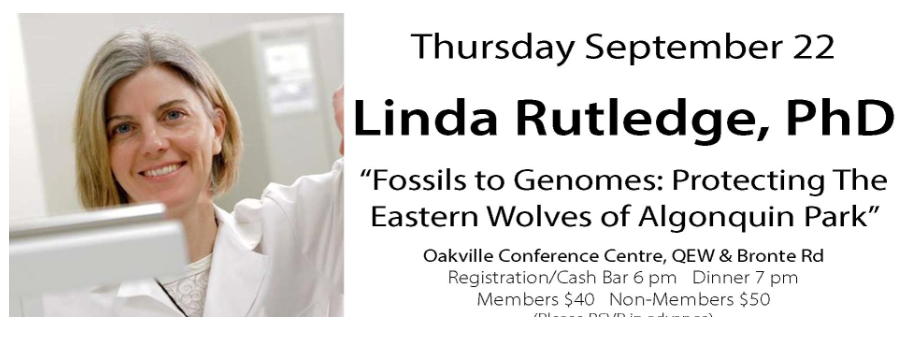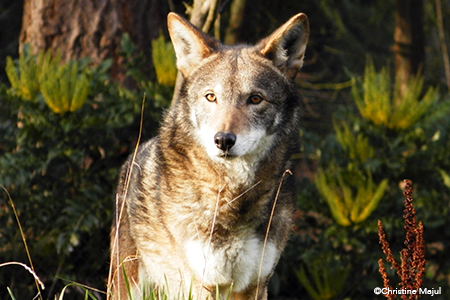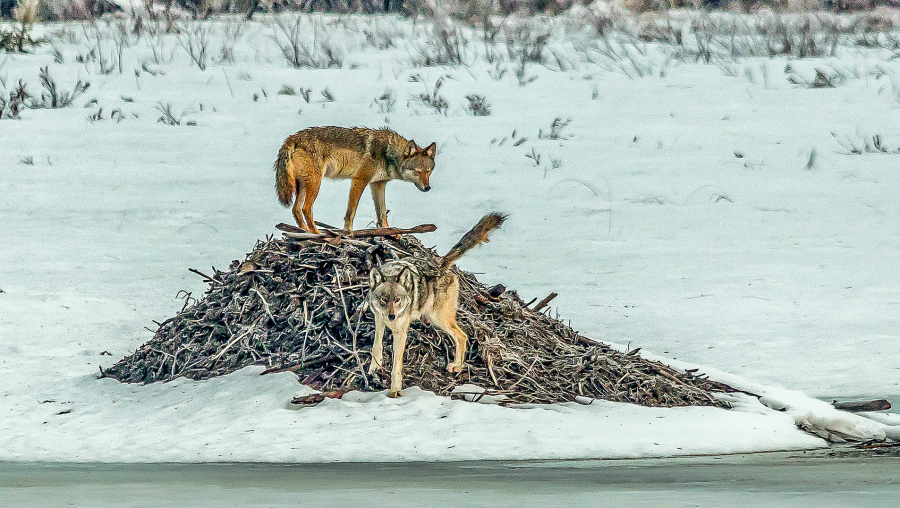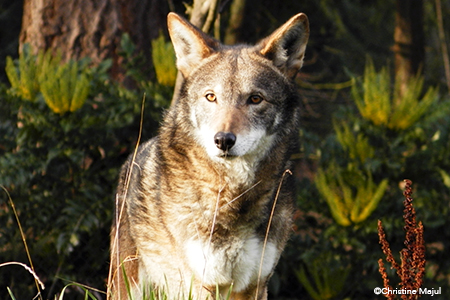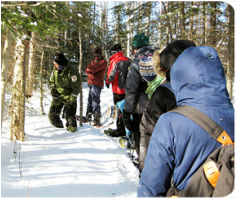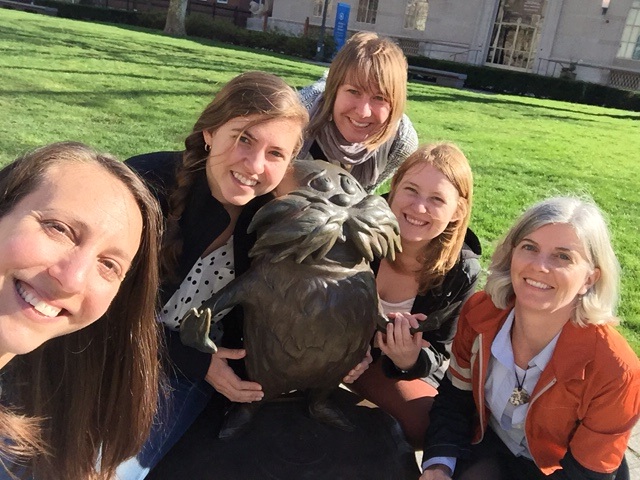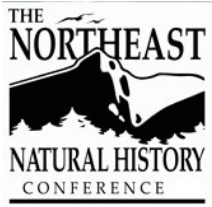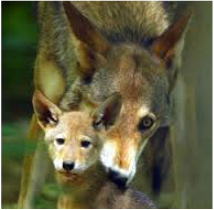news
May 12, 2022
Our new article on caribou diet is now published. Read it here and see the Trent media coverage of it here.
april 1, 2022
Eastern Wolf conservation in Québec. Discussion on CBC Radio Canada program Les années lumière: Protéger le loup de l'Est: Les explications d'Alexandre Touchette.
december 27, 2021
Cottage Life Article: "Is the coywolf the most Canadian animal?" BY PHILIP PREVILLE
July, 2021
|
Excited to be collaborating on this research project on the Genomics of North Atlantic Right Whales funded by Genome Canada. Read more here. |
may 28, 2021
Our new publication on the genetics of Isle Royale wolves after the heroic Canada-US translocation efforts is now available. Click here to read it in full.
news Archive
August 10, 2020
Click here to read my new article on Algonquin wolf conservation published in The Conversation Canada
DECEMBER 19, 2018
Our new red wolf research covered by Science News. Read the Science News article here.
December 14, 2018
Our new coyote research covered in The New York Times. Read it here.
August, 2018
The critically endangered red wolf (Canis rufus) and Mexican grey wolf (Canis lupus baileyi) is being reviewed by a panel under The National Academies of Sciences, Engineering & Medicine. Find out more here or here.
october 9, 2017
The RADsequencing data associated with our publication in Biology Letters (Rutledge et al. 2015. RADsequencing and genomic simulations resolve hybrid origins in North American Canis) (http://rsbl.royalsocietypublishing.org/content/11/7/20150303) is now more easily accessible through the Dryad Repository at: http://datadryad.org/resource/doi:10.5061/dryad.pr318
June 7, 2017
Our comment on hybrid origins of eastern and red wolves was published today in Science Advances. Read it here.
Canadian society for ecology and evolution conference 2017
I'm very excited to announce that my proposed symposium on Ecological Epigenetics has been accepted for the Canadian Society for Ecology and Evolution conference in May 2017 in Victoria BC. Researchers from Canada and the United States will present their research Find out more and keep up to date about the conference at CSEE2017 and on twitter @CSEE2017
Description of Symposium:
As researchers move beyond the genetic code and start to explore the underpinnings of gene expression, there is growing interest in understanding the influence that epigenetic changes (DNA methylation, histone modification, and short non-coding RNA (ncRNAs)) have on evolutionary processes. Previously limited to laboratory settings and model organisms, epigenetics research is quickly being recognized as a key mechanism by which ecological and evolutionary processes shift in response to stimuli. In most cases, ecologists are interested in epigenetics research that explores trans-generational epigenetic mechanisms that have the potential to shape evolutionary trajectories and influence fitness via phenotypic plasticity. These changes are influenced by a variety of environmental variables (natural and/or artificial stressors) including environmental toxicity, predator-prey interactions, nutrient availability, etc. The symposium on Ecological Epigenetics brings together key researchers in the field who, combined, explore a wide variety of focal species, ecosystems, and interests. Their research explores epigenetic mechanisms linked to: phenotypic response to toxic chemicals, behavioural response to predators and resources, and variability that influences the palatability of beer. Overall, the symposium will bring this new and exciting field of research to a wide audience at CSEE2017.
Description of Symposium:
As researchers move beyond the genetic code and start to explore the underpinnings of gene expression, there is growing interest in understanding the influence that epigenetic changes (DNA methylation, histone modification, and short non-coding RNA (ncRNAs)) have on evolutionary processes. Previously limited to laboratory settings and model organisms, epigenetics research is quickly being recognized as a key mechanism by which ecological and evolutionary processes shift in response to stimuli. In most cases, ecologists are interested in epigenetics research that explores trans-generational epigenetic mechanisms that have the potential to shape evolutionary trajectories and influence fitness via phenotypic plasticity. These changes are influenced by a variety of environmental variables (natural and/or artificial stressors) including environmental toxicity, predator-prey interactions, nutrient availability, etc. The symposium on Ecological Epigenetics brings together key researchers in the field who, combined, explore a wide variety of focal species, ecosystems, and interests. Their research explores epigenetic mechanisms linked to: phenotypic response to toxic chemicals, behavioural response to predators and resources, and variability that influences the palatability of beer. Overall, the symposium will bring this new and exciting field of research to a wide audience at CSEE2017.
|
Honoured to be speaking at the Canadian Club of Halton dinner series in Oakville, Ontario. Find out more information by clicking here.
“Canadians presenting to Canadians” The Canadian Club is an opportunity for all who share a keen interest in contemporary Canadian life and who seek context, perspective and a deeper level of understanding. We promote Canadian identity by providing notable, knowledgeable and celebrated speakers on a wide variety of subjects. |
eastern wolf education summit: June 13 - 14, 2016 in Mt. Kisco, NY.
Eastern Wolves in Algonquin Park. Photo by Steven Dunsford.
Had a great session at the Eastern Wolf Education Summit on June 13 - 14, 2016 in Mt. Kisco, NY. Hosted by the Wolf Conservation Center. Talks by Brent Patterson, John Benson, Adrian Treves, and myself. Also had town hall format with state wildlife representatives from Maine, New York, Vermont, and Connecticut. Fortunate to have access to the extensive knowledge base of Adrian Wydeven, who worked on wolf conservation in Wisconsin for many years. Lots of great people from various ENGOs as well. Great to have everyone talking about wolves. Continue to watch on the Wolf Conservation Center website for upcoming news.
TWS 2016 Conference: panel discussionInteractions of human-caused mortality, genetic introgression, & management among wild red wolves in North Carolina. The panel discussion at The Wildlife Society conference on October 18, 2016 in Raleigh NC was very well received. Lots of positive discussions and feedback on how to move forward with red wolf conservation. Honoured to present on the applicability of eastern wolf conservation in Algonquin Park to red wolf conservation in NC.
winter weekend 2016 in killarney parkJoin the Friends of Killarney Park in their Family Day Winter Weekend, February 13-14, 2016. Participate in Citizen Science for the Eastern Wolf Survey and help track Eastern Wolves in Killarney Park! Find out more here.
|
Northeast natural history conferenceWe had a great session on Conservation of Wolves and Coyotes at NENHC. As an added bonus, we also had a chance to visit the Dr. Seuss sculpture garden - Springfield is his hometown. Pictures taken with the Lorax and Cat in the Hat!
Join us at the 2016 Northeast Natural History Conference in Springfield MA, April 22-24. I am organizing and moderating a session on the Ecology and Conservation of Wolves and Coyotes. Looks to be a great line-up of sessions! Find out more here.
|
red wolf workshopVery productive session at the Red wolf Workshop in Atlanta, Georgia May 23 - 26, 2016. Excited to meet and talk with many of my favourite researchers in the field. Watch for a press release on The Wildlife Society website and plan to attend the special panel at the TWS conference in Raleigh NC.
I will be participating in a workshop on the hybridization and endangered species status of red wolves (Canis rufus) at the Charlie Elliott Wildlife Center in Georgia, from May 24 - 26. Researchers from across North America will be at the meeting to discuss the next steps for this iconic endangered species. The workshop is organized by researchers at the North Carolina State University.
|
